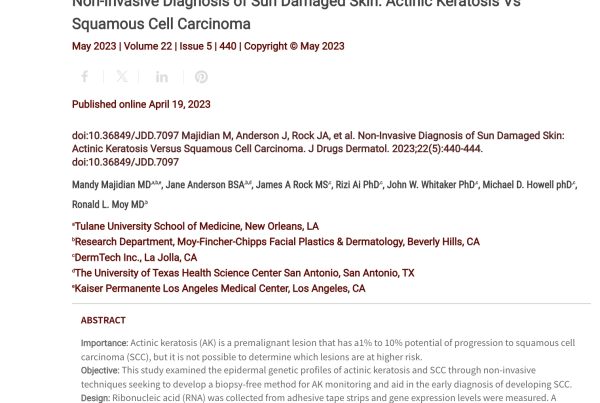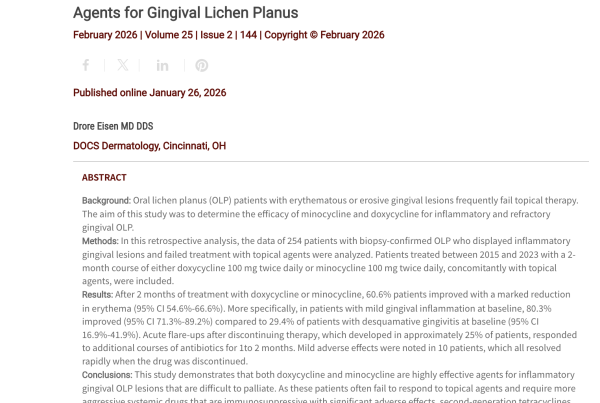Featured Article

Nutrition is thought to play an important role in skin homeostasis. The use of nutraceuticals or “functional foods” in skincare along with technological innovations within the food industry has been rising.
Nutrition is thought to play an important role in skin homeostasis. The use of nutraceuticals or “functional foods” in skincare along with technological innovations within the food industry has been rising.
In 2016, the collagen market was valued at an estimated 3.71 billion USD and is projected to reach 6.63 billion USD by 2025. Collagen supplements, originating from various sources (eg, porcine, bovine, marine) and available in numerous formulations (eg, protein, gelatin, hydrolysate, peptides), are marketed as improving skin integrity and modulating skin aging. However, even with this increase in patient interest and market share, the use of collagen supplementation in dermatology remains controversial due to the lack of regulation on quality and quantity of ingredients in over-the-counter collagen supplements, as well as minimal peer-reviewed literature on the subject.
Fortunately, there are increasing numbers of clinical studies regarding potential effects of collagen-based dietary supplements on skin. Collagen is the most abundant component of the extracellular matrix constituting 75% of skin’s dry weight.5 Qualitative and quantitative decline in collagen is associated with cutaneous aging.6 Collagen protein is a right-handed triple helix of parallel polypeptides where every third amino acid residue is glycine (Gly) resulting in X-Y-Gly triplets, where X andY are frequently proline (Pro) and 4-hydroxyproline (Hyp; an amino acid sub- unit unique to collagen), respectively,7 making Pro-Hyp-Gly the most common amino acid triplet unit found in collagen
Native, animal collagen can be extracted from connective tissue in various forms.10 When denatured by heat, collagen forms gelatin, which has been used for centuries as a food source and traditional medicine in Europe and China.
Further enzymatic hydrolysis of gelatin produces collagen hydrolysates (CH) composed of peptides of varying lengths. CH has a lower molecular weight than gelatin, higher water-solubility, and no gelation properties at ambient temperatures, allowing CH to be conveniently formulated into liquid drinks and jelly sticks for oral consumption. In the past decade, CHs have gained popularity as a nutraceutical supplement.
Get More from the JDD
Get the latest dermatology news delivered straight to your Inbox – sign up for the JDD Newsletter.
Discover the latest research, exclusive articles from leading dermatology experts, popular Podcast episodes, free CME activities, and more!
You May Also Like











